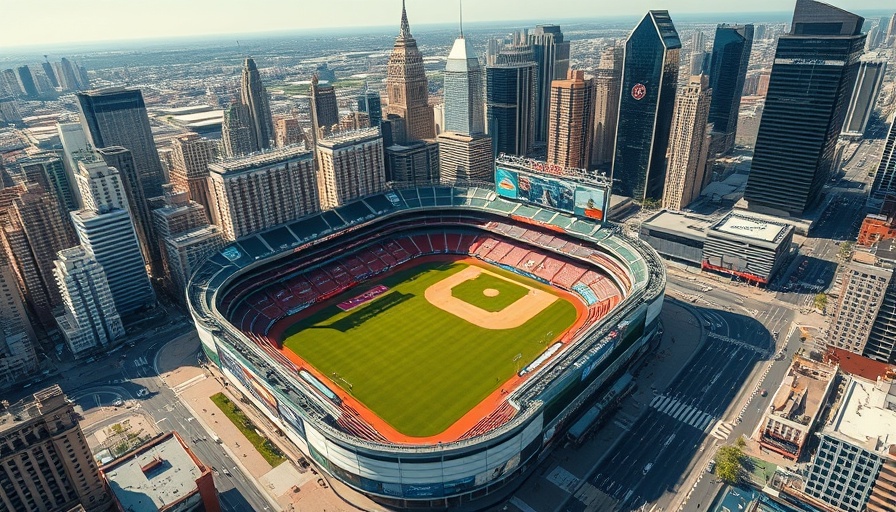
Will North Carolina Finally Get Its MLB Team?
As Major League Baseball weighs its expansion options for the coming decade, the excitement surrounding the prospect of North Carolina hosting its very own MLB team is palpable. This conversation has taken center stage as cities like Charlotte and Raleigh vie for the chance to bring professional baseball to the state. With major economic and cultural impacts at stake, let's delve into why this could be a game-changer for North Carolina.
The Case for Feasibility: Population Growth and Local Interest
Recently, data from the U.S. Census has shown remarkable population growth in both the Charlotte-Concord and Raleigh-Durham metropolitan areas. For instance, Charlotte's metro area has already outpaced five existing MLB markets, while Raleigh stands taller than two others. As Charlotte welcomes newcomers and Raleigh maintains a steady influx of residents, the infrastructure is becoming increasingly ready to support major league games.
According to recent statistics, both cities have shown impressive growth rates—9% for Raleigh and 8% for Charlotte over the last four years—highlighting the enthusiasm in these communities for a team. This growing population base is crucial in determining whether either city could feasibly support a franchise and fill stadium seats.
Economic Opportunities: Boosting Jobs and Local Revenue
Bringing an MLB team to North Carolina can significantly influence the state's economy. According to economists, a professional sports franchise fosters job creation through stadium construction and operations, not to mention the businesses that flourish as fans flock to games. The potential for an increase in regional incomes is also noteworthy, as restaurants, hotels, and local retailers stand to benefit from the influx of both local and traveling fans.
Fans not only contribute to the game-day atmosphere, but they also drive economic growth in the region. If the MLB team successfully attracts spectators from neighboring states, the financial benefits could stretch far beyond the immediate vicinity of the stadium, creating a more vibrant, economically robust area.
Challenges Still Looming: Economic Impact and Fan Engagement
However, potential investors and city planners must tackle some complex challenges. Accurately estimating the economic impact of a new MLB team involves understanding fan attendance patterns and demographics—areas where predicting success can truly be an art form rather than a science. Questions arise: Will fans be willing to commit to regular attendance, and can a team create enough local excitement to engage the broader community?
Moreover, it's essential to think about the long-term sustainability and financing for new stadiums. As we’ve seen in other markets, funding construction through public and private investment can lead to disputes and misunderstandings within the community. Engaging local voices before making final decisions will be crucial to both the perception and the practical success of bringing a MLB team to the state.
Future Predictions: What Lies Ahead?
As North Carolina continues to grow and evolve into a major metropolitan hub, the future of an MLB team in the state may hinge on both community engagement and economic planning. With Charlotte and Raleigh leading the way, 2025 could mark a turning point in the league's history. The strategic location and passionate local fan bases present a dynamic opportunity that could reshape the sports landscape in North Carolina.
If successful, this endeavor could foster a sense of pride and community, bridging diverse populations through the shared love of sports. Whether you’re a lifelong baseball lover or simply curious about what these changes may bring to your backyard, the debate surrounding a North Carolina MLB team is one worth following closely.
Get Involved: Share Your Opinion!
As residents of this vibrant city, your thoughts matter in shaping the future of professional baseball in North Carolina. Don't miss out on sharing your opinion—whether you're in favor or against an MLB team in our state. The more voices we have, the better the dialogue around sports, community, and economic growth.
 Add Row
Add Row  Add
Add 




Write A Comment